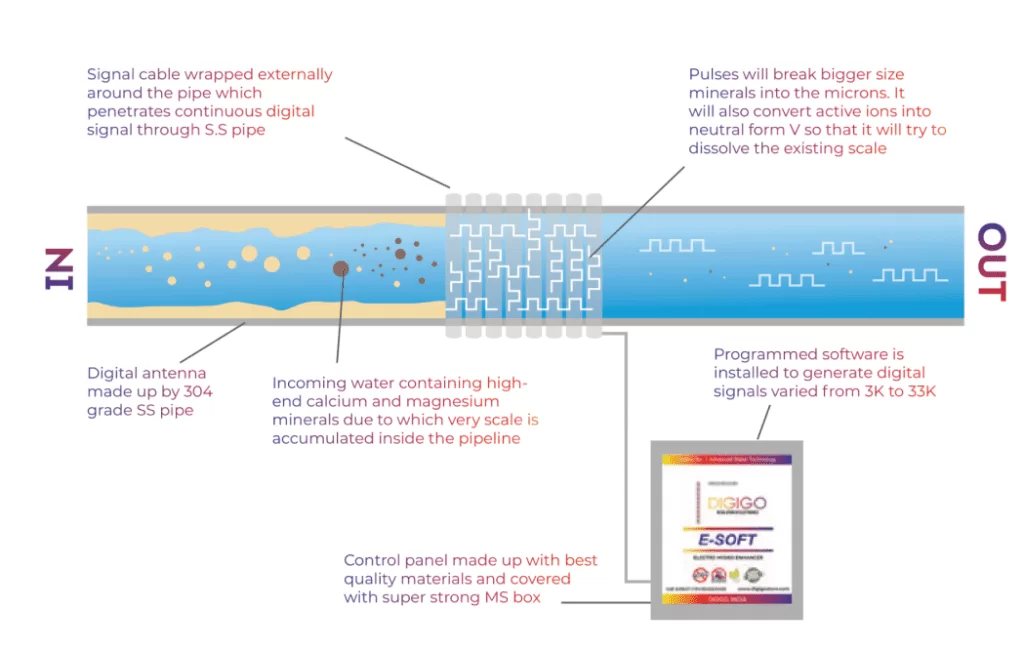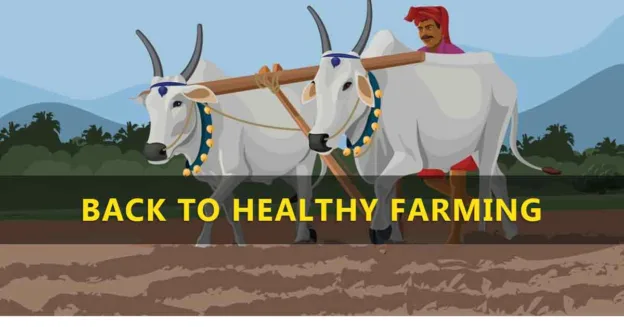In this blog, We explain everything about E-Soft Water Softener for Agriculture and Why today’s farming need Water Softener. We also explain how ancient farming was good due to good water and why Today’s Hard Water is bad for Agriculture.
Contents
Ancient Farming:
Thirty to forty years ago, They don’t used soft water by Agriculture Water Softener but they used to use the water that was found in the upper layers of the ground through ponds and wells. This water was naturally soft because it was rainwater. It also contained minerals, but these minerals came from the ground through dissolution, so the mineral particles were as small as 0.5 microns.
Farming requires four main elements: 1) Oxygen 2) Nitrogen 3) Calcium 4) Magnesium. Calcium and magnesium are obtained from water, while oxygen and nitrogen are obtained from the air. The function of oxygen and nitrogen is to increase the production of bacteria and provide nutrition. These bacteria absorb micro-nutrients from the soil and transport them to the roots. Previously, the size of calcium and magnesium was small, so they were easily absorbed into the roots and the roots remained strong. Therefore, it was possible to farm with only water. That is why water was used as fertilizer.
Change in Situation:
The main reason for the change in the situation is slowly but surely the increased population and the increasing water demand. To meet this demand, groundwater is being drawn from deeper levels. As a result, the size of these mineral particles has now become 1-2 microns. We call such hard water with hard minerals. These large-sized minerals stick to the upper layer of the soil and block the surface of land. As a result, the flow of oxygen and nitrogen stopped and the nutrition that should have come through water is no longer available.
The impact of this change is that plants are not getting the nutrients they need. As a result, their roots become weak and they are unable to absorb water and nutrients properly. This leads to reduced crop yields and increased crop damage.
To address this issue, farmers are using chemical fertilizers to provide the nutrients that their crops need. However, this is not a sustainable solution. Chemical fertilizers can pollute the environment and harm human health
Research on Hard Water:
Scientists have researched that if calcium magnesium stones are rubbed and ground to 0.5 microns and given to the roots; then these particles break down with water and are easily absorbed into the roots. By doing this, the roots became strong, but these stones naturally mixed with particles of heavy metals such as arsenic and lead. This caused the lower layer of the soil to also be blocked. In this way, the soil stopped getting nutrients from both sides. Due to this, the roots that used to grow deep and strong earlier instead become horizontal and thin. Weak roots led to weak plants. Along with this, it needs more artificial fertilizers and increased crop damage.
One study found that plants grown with hard water had smaller root systems than plants grown with soft water. This is because the hard water minerals can block the pores of the surface making it difficult for roots to absorb water and nutrients.
Another study found that plants grown with hard water were more susceptible to diseases. This is because the hard water minerals can weaken the plant’s immune system, making it more vulnerable to infection.
Need for Soft Water:
Now, to get out of this situation, we need to work on the cause of the problem. The quality of water has changed due to the water level going deeper and agriculture has become weak. Now, to strengthen agriculture, this hard water needs to be softened so that it contains small-sized minerals and plants do not have any difficulty in absorbing them.
The need for soft water in agriculture is clear. Soft water is easier for plants to absorb, which can lead to increased crop yields and reduced crop damage.
E-Soft Water Softener for Agriculture Technology:
To change the water back to what it used to be, we have created a device. Its scientific name is Electro Hydro Enhancer, which is E-Soft.
How E-Soft Water Softener Works?

- The E-Soft Water Softener for Agriculture device has two main components: 1) a digital antenna and 2) a control panel.
- The digital antenna is connected to the control panel by a cable.
- The control panel generates low-frequency electronic pulses.
- These electronic pulses pass through the digital antenna.
- The low-frequency electronic pulses interact with the water molecules, causing the hard minerals to break down into smaller particles.
- These smaller particles are then easily absorbed by plants.
Transformation E-Soft Hard Water Softener Brings:
Using soft water makes the soil porous; because small minerals do not block the surface. The same minerals that were a nuisance are now converted into fertilizer. The roots can easily absorb this water so that the plant will be strong.
Due to the availability of nutrients such as calcium, magnesium, oxygen, and nitrogen to the crop, the plant reduces the need for chemical fertilizers. Hence E-Soft Agriculture Water Softener System protects the environment. Therefore, it becomes possible to farm only with water as in ancient agriculture.
E-Soft water softening technology has some advantages over traditional water-softening methods.
- It breaks the minerals within the water; with no water wastage.
- More efficient in terms of energy consumption.
- Less expensive to install and maintain.
Conclusion:
Overall, E-Soft Agriculture Water Softener has the potential to revolutionize the way we farm. It could help to improve crop yields, reduce crop damage, and protect the environment. Join the farmers who are revolutionizing agriculture with E-Soft Water Softener.
